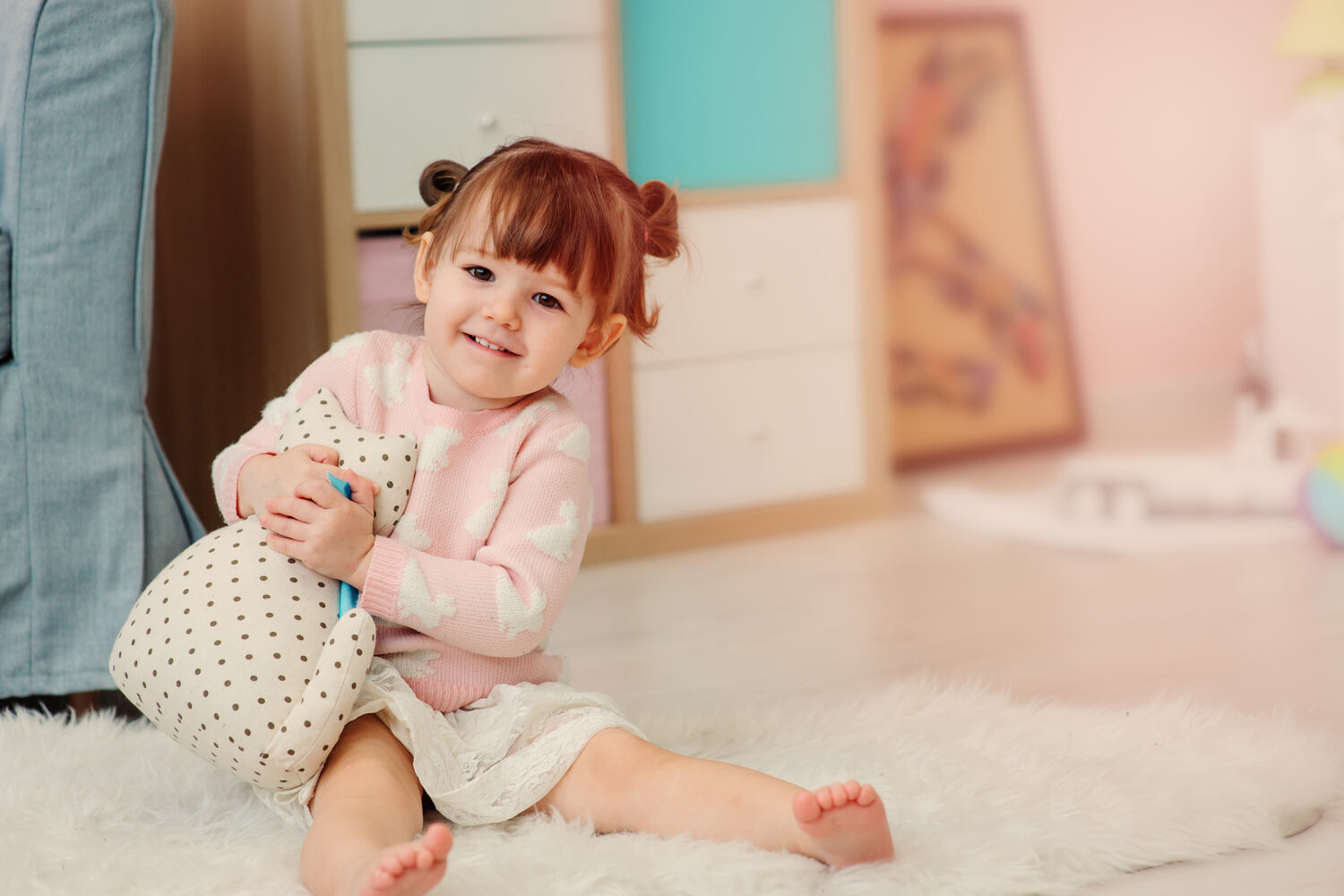
Congratulations! Your little bundle of joy is 2-year-old. It’s been 2 years since you started this wonderful parenting journey with your toddler. Your not-so-little toddler is achieving many toddler milestones and is growing a little too fast for your liking. It can be heartwarming and overwhelming at the same time.
When you look around at other toddlers of similar age, what do you see? Do you see how they are also playful and curious like your toddler or do you worry about the various skills they can do better or more than your toddler? What are the toddler milestones a 2-year-old should meet? Come, let’s find out.
In This Article
- Developmental Milestones For 2-Year-Old Toddlers
- Growth Chart For a 2-Year-Old Toddler
- Tips to Boost Your 2-Year-Old’s Development
- Health And Care of Your Toddler
- What Your Toddler’s Typical Day Looks Like?
- Some Useful Tips For Your Toddler
- FAQ’s
Developmental Milestones For 2-Year-Old Toddlers
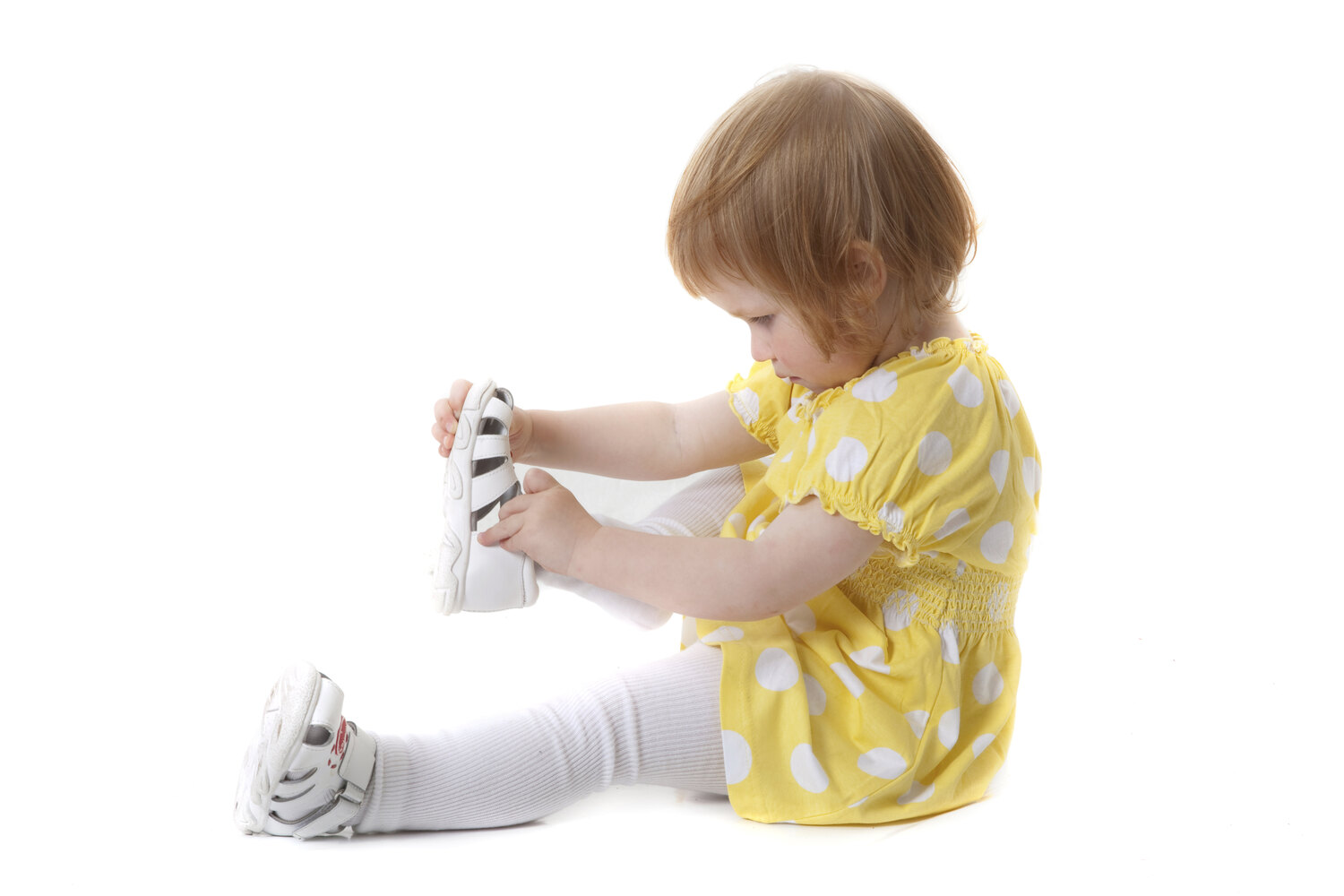
Here are some developmental toddler milestones your 2-year-old can achieve this year-
Chatterbox
- Your toddler will be talking more in recent days
- They can understand questions and respond to them without much help. Toddlers this age love to talk about anything and everything
- They will share stories about their daily lives and activities, at length with anyone willing to hear
- They can talk better – say more words and also pronounce better
Independence
- Your toddler is getting very independent and wants to do everything without help
- They may take a lot of time to wear their shoes but have a meltdown when you help them do it
- If you try to suggest or help with an activity, you may hear a loud and clear “no” or your toddler might throw a tantrum
Perseverance
- As they become independent, their perseverance increases
- They will tirelessly try to put on that shoe or the shape into its right opening without any help or distractions
Big Emotions
- Some toddlers may experience big emotions or feelings
- They may feel very happy, very sad, or angry about situations
- They may need help to regulate these emotions as they are still immature
Cognitive Development
- A toddler’s brain is very active and constantly grasping everything they see or are exposed to
- They can identify and name a few body parts
- They will explore toys and try to use them in a way they feel fit. They may use the knowledge from playing with other toys to understand or use certain new toys
Growth Chart For a 2-Year-Old Toddler
An average 2-year-old height and weight will be as follows-
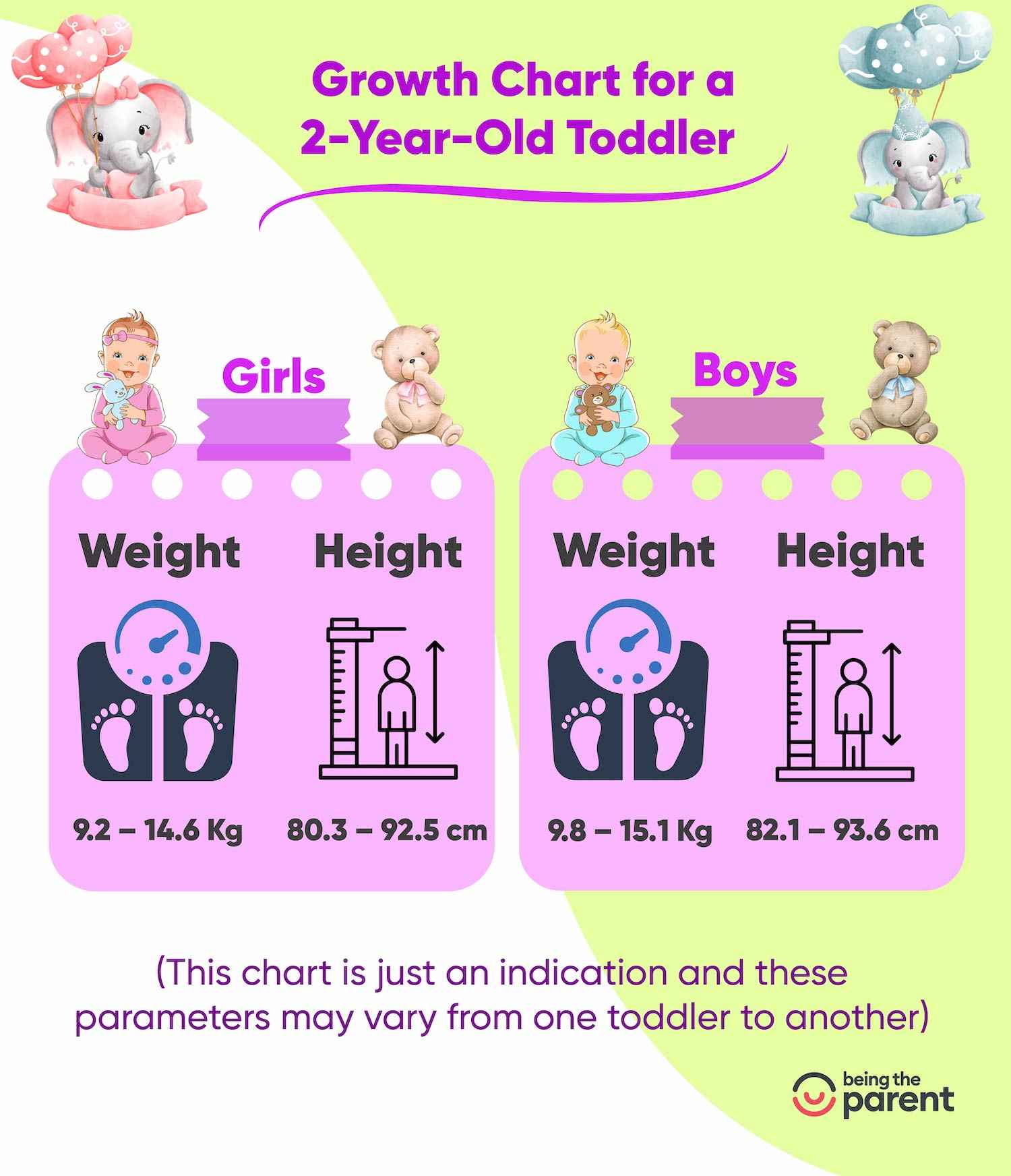
Tips to Boost Your 2-Year-Old’s Development
Here are some tips for parents to aid their 2-year-old’s development in attaining their toddler milestones-
1. Potty Training
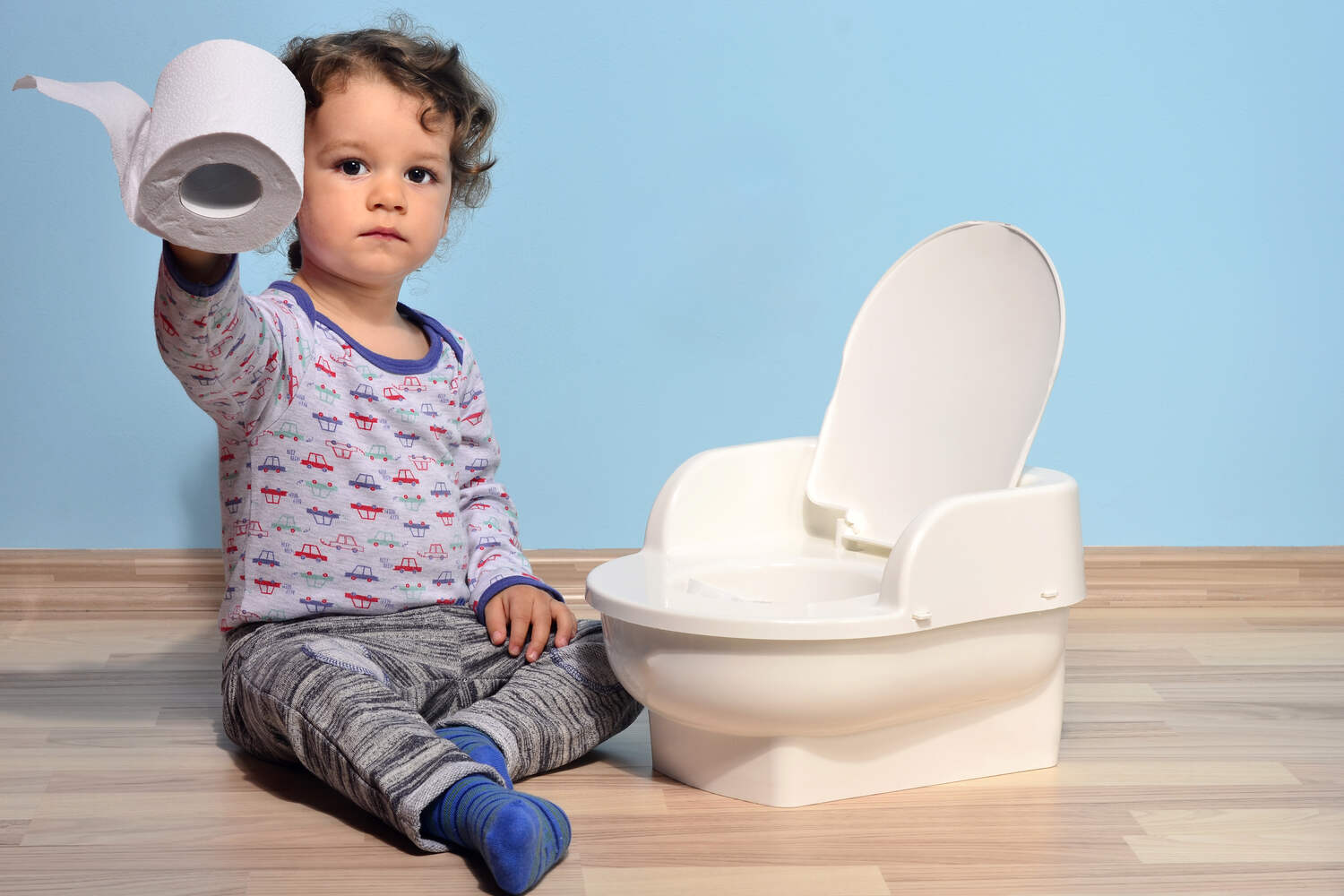
If your toddler is resisting potty training try giving them some diaper-free time during the day. You can also try potty training pants or underwear.
2. Park Time
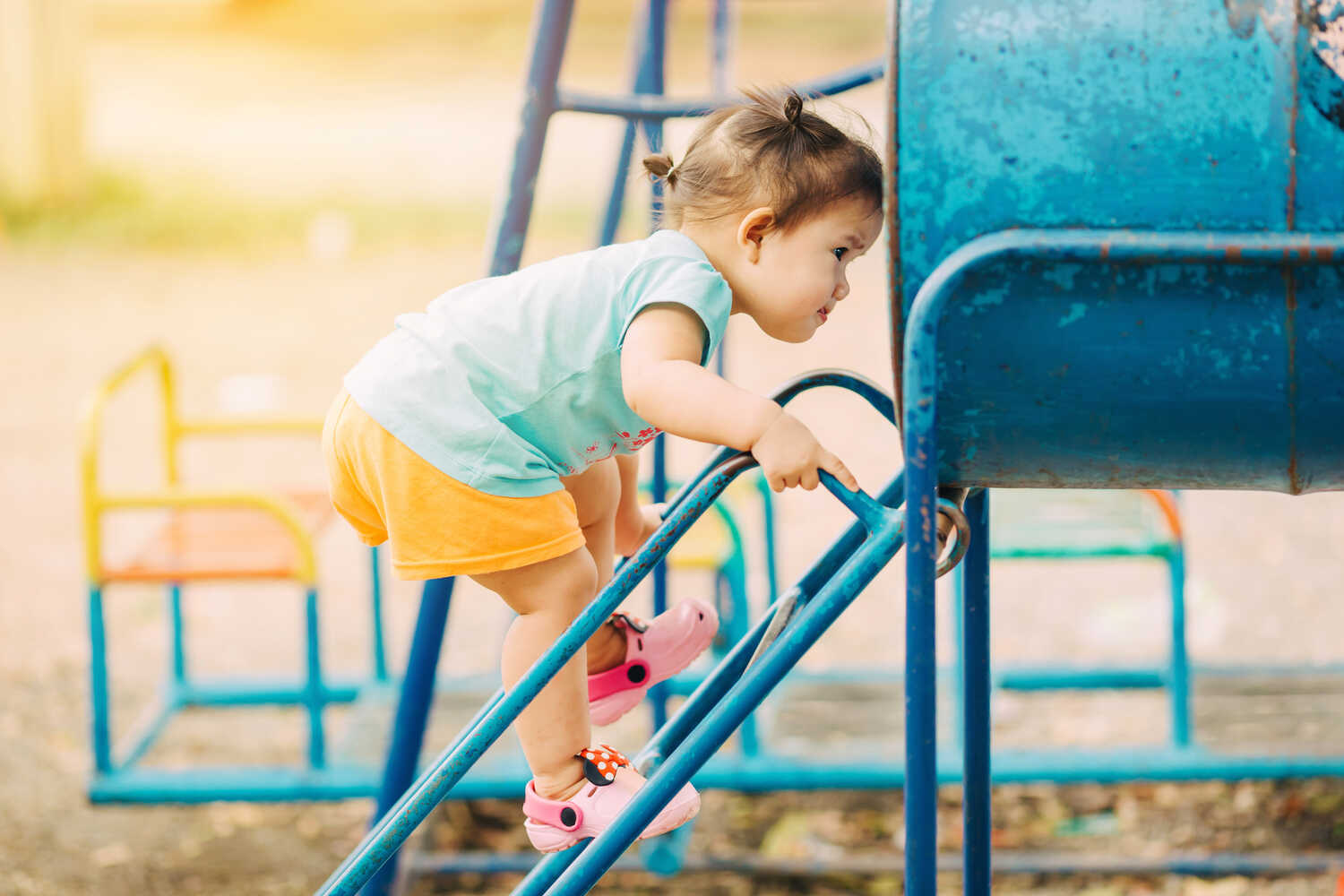
Take them to parks or play areas that have things to climb. Your toddler will love to climb at this stage, so give them a safe space to do it to their heart’s content. This will also reduce the chances of them developing a fear of heights.
3. Control Whining
It is common for toddlers to start whining at this stage. Instead of getting angry or irritated, help them communicate their feelings and wants. Ask them leading questions to understand what they are upset about.
4. Building Blocks
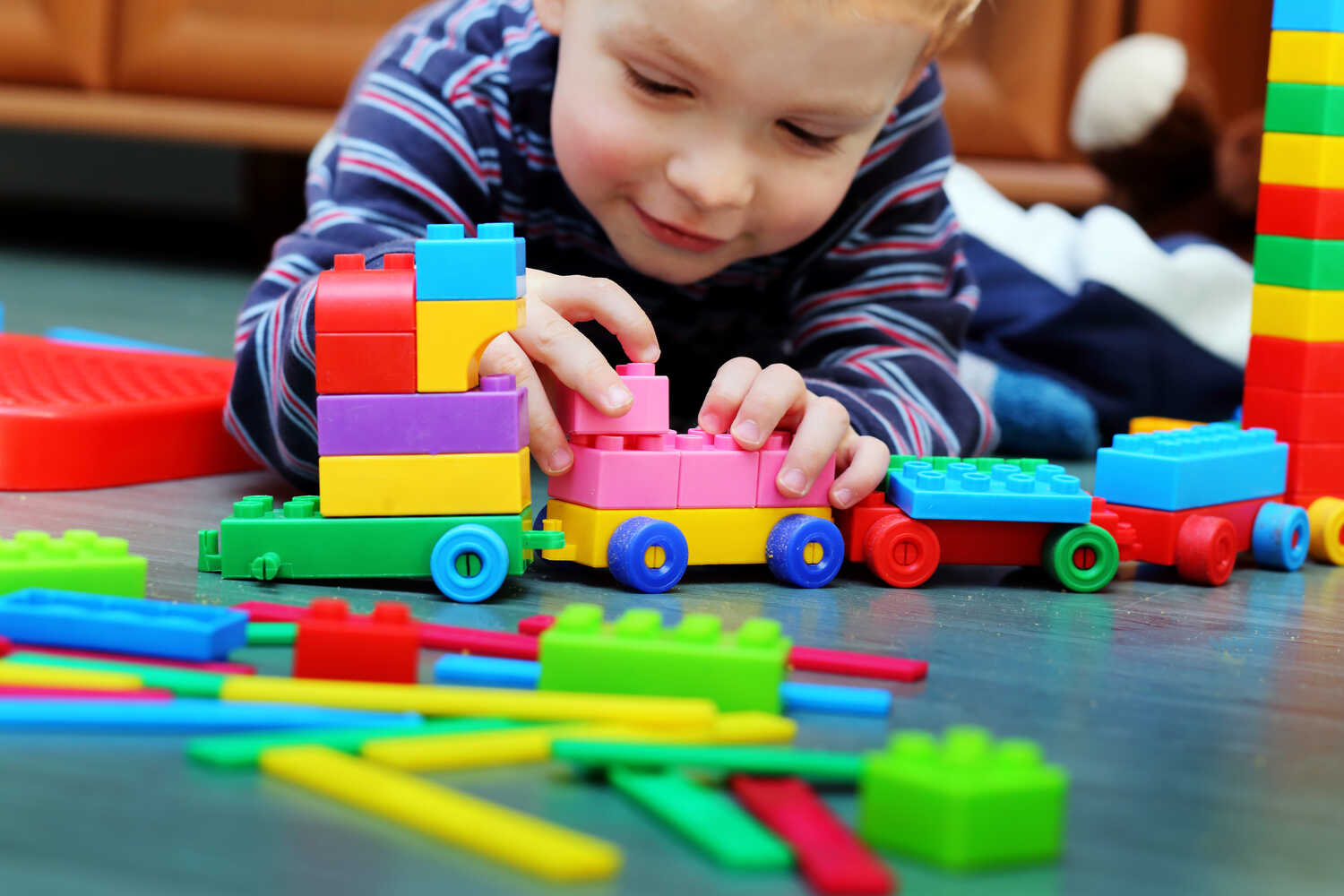
Your toddler can now build not just vertically but horizontally too. Encourage them to build more with building blocks. There are a lot of different kinds of building blocks available in the market these days, choose the ones which your toddler likes.
5. Rhymes and Stories

Use rhymes and stories to teach them new words and concepts. They can learn rhymes with action. The action and tunes help toddlers learn and remember the words better (1). It also makes pronunciation easier.
6. Make Faces
Teach your toddler about emotions by making faces. Show them a happy face, sad face, or angry face, and encourage them to express emotions in their own way. This will help them acknowledge, name, and understand emotions.
Health And Care of Your Toddler
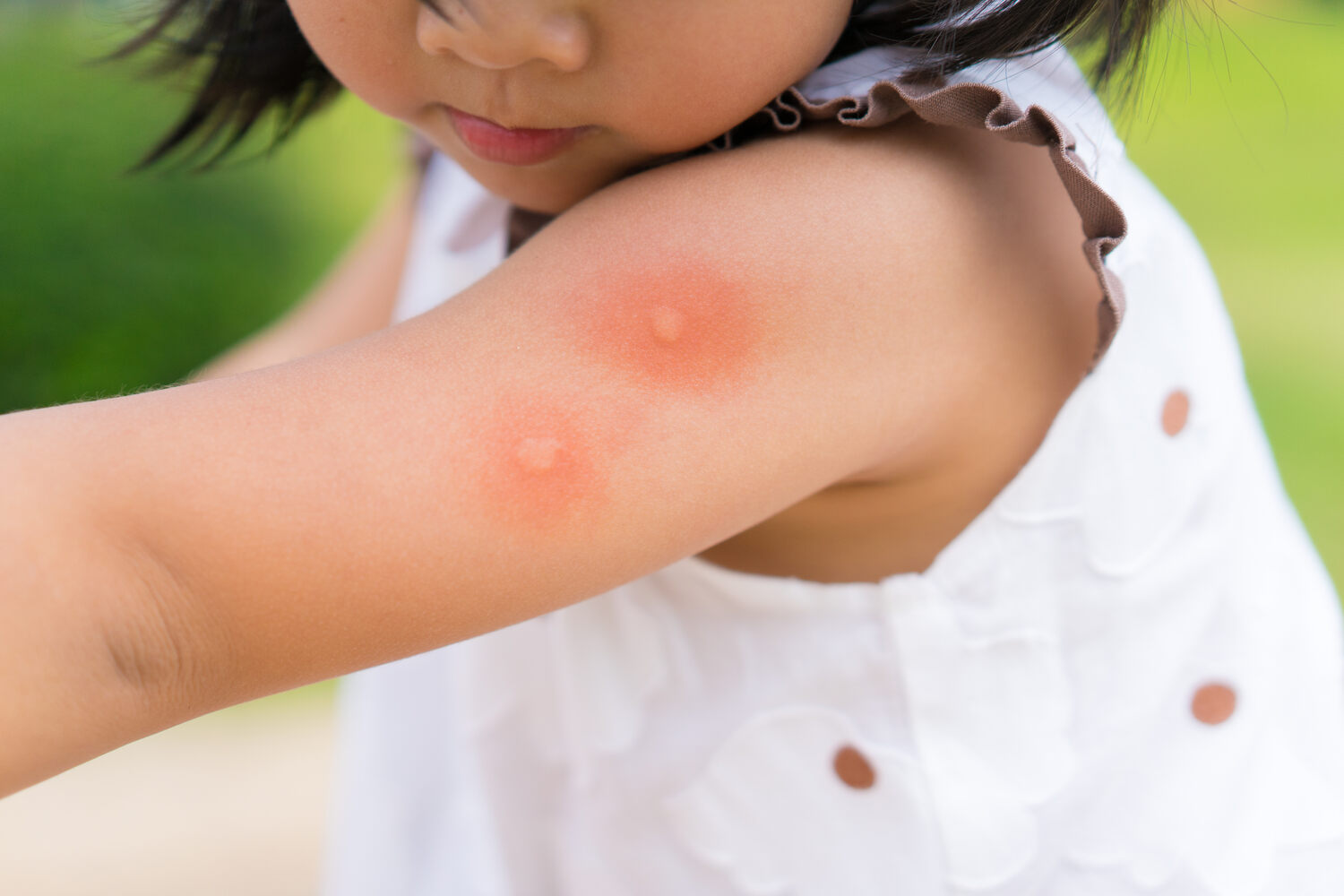
Here are some ways to effectively take care of your growing toddler’s health-
- A sore throat can be irritating and disturb their sleep. Keep giving them warm water to sip on
- Bacterial infections are common at this age and will require antibiotics
- Some elders in the family may advise against milk or curd when your toddler has a bad cold, as it can accelerate mucus generation. Consult your pediatrician before taking any such step (2)
- If you notice an allergic reaction or sudden rash on your toddler’s skin, consult a doctor immediately. It could be due to a pet or some food they ate. Allergies have to be controlled immediately
- If your toddler is yet to start speaking, understand instructions, or follow simple commands, consult a doctor immediately
What Your Toddler’s Typical Day Looks Like?
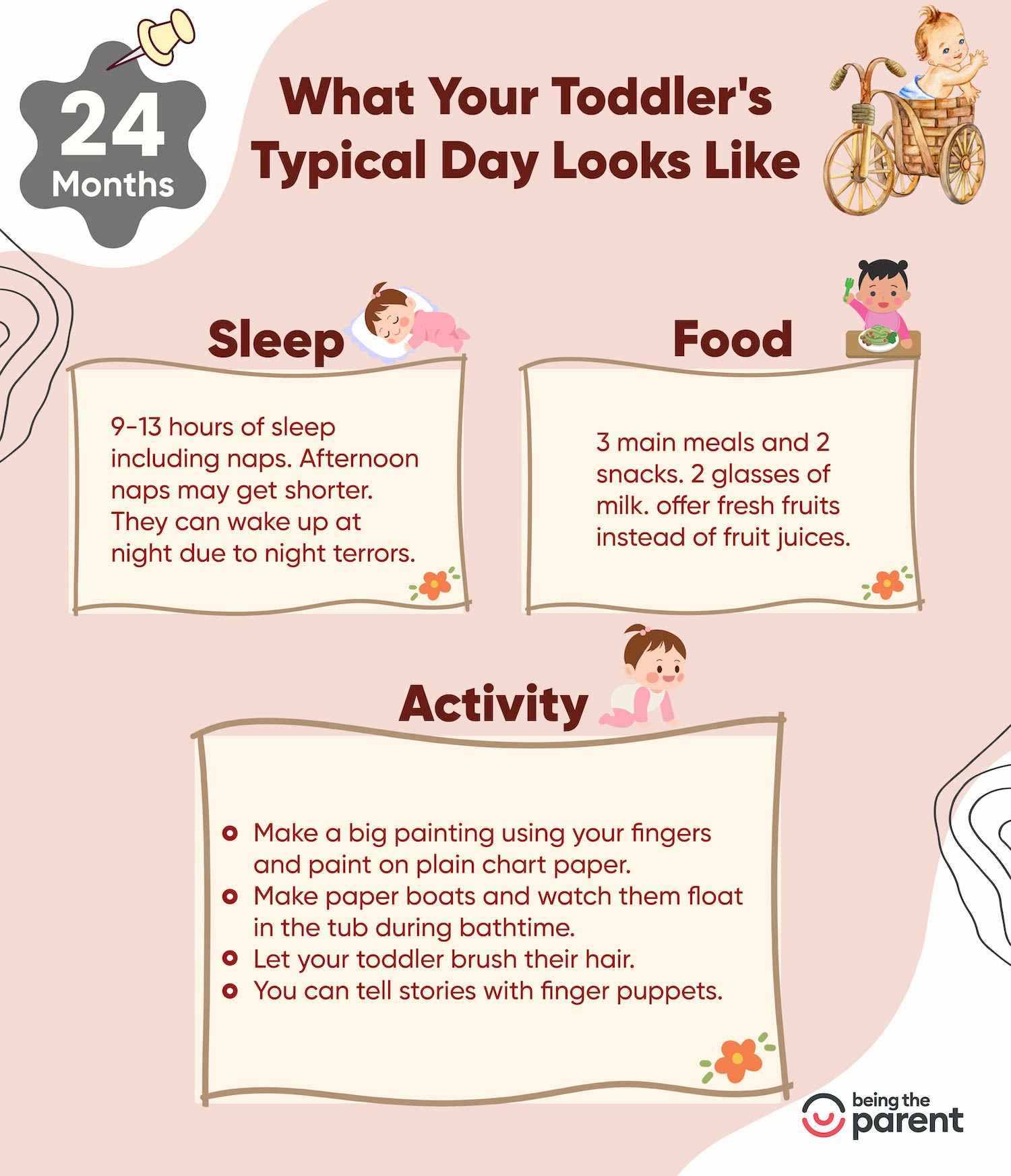
Some Useful Tips For Your Toddler
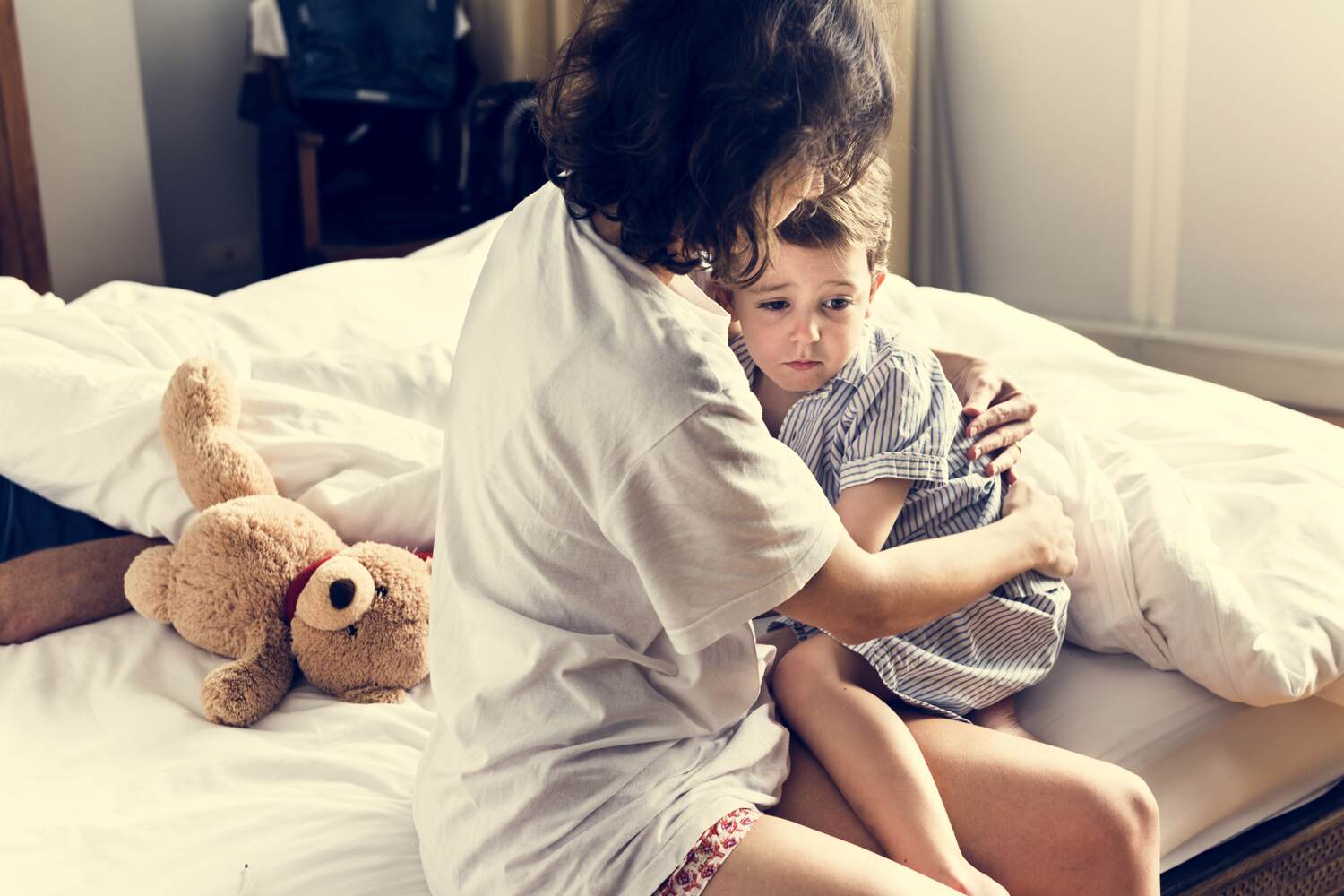
Want to support your toddler in achieving their toddler milestones? Try these tips-
- Be calm and reassuring when your toddler has nightmares. Do not brush it off as anything. It is important to acknowledge their fear
- Give them a soft toy, a special blanket, or a new night lamp to help them get over their nightmares and sleep through the night
- Hide objects around the house and ask your toddler to find them. You can also give them clues
- Name a few things you see when you step out for a walk or a drive. This will help them learn the names of common things more effectively
- It’s their birthday month. You can make it special by doing more activities with them. You can help them unwrap and explore their birthday gifts if any
Your 2-year-old toddler has crossed many toddler milestones and will continue to develop more in the coming years. Always stay by their side patiently, and just let them learn. Small falls and bruises should not come in the way of their development. Remember, different toddlers will meet different toddler milestones at this age. Realize your toddler is unique in their own way and let their personality develop independently.
FAQ’s
1. What Should a Toddler Know by The Age of 2?
A toddler by the age of 2 should know their name, and recognize other familiar names like that of their parents, siblings, or playmates. They should know to name a few body parts and recognize familiar faces. They should know to slip their feet into slippers or open shoes, throw a ball, push or pull along toys when walking, get off a low stool or bed without assistance, and climb stairs with little or no help. The list of things a 2-year-old can possibly know, can be long. These are some of the most basic things a 2-year-old toddler should know.
2. What Should a 2-year-old be Able to do Academically?
A 2-year-old is still too young to start school or academics. At this age, their learning is mostly through play and observation. By now they should be able to sort shapes, match a few colors, identify a few images or pictures of animals, birds, etc. in books or flashcards, and make scribbles with a crayon.
3. What is Normal Behavior For a 2-Year-Old?
It is quite normal for a 2-year-old to walk around and explore their surroundings on their own, resist control, get upset on hearing a “no”, and show interest in playing with other toddlers or toys. It is also normal for them to show preference for certain toys or people and fear strangers.
4. What Are The Red Flags For 2-Year-Old Behavior?
The inability to use common objects they are used to, like a comb, ball, spoon, etc., not walking properly yet, and not saying words or trying to communicate with others are all red flags in a 2-year-old toddler’s development. If they are screaming for no reason, running away without control despite saying a no, or if they pay no attention when you are talking to them and keep saying something irrelevant, it could indicate a developmental issue with regards to their behavior.
5. At What Age do Toddlers Start Talking?
Toddlers will start saying a few words when they are about 14 months old. They will start using more words and simple sentences when they are about 21 months old. Some toddlers can start talking fluently when they are about 2 years old and some will need a little more time. Language development depends on many factors including their exposure to the language and the screen time they get.
6. Should a 2-Year-Old Know Their ABCs?
No, it is not necessary. Toddlers will learn the letters of the English alphabet when they start going to school. If you teach them at home, some toddlers can recite them and some can recollect only a few letters and may not be in order. This does not reflect on their development.
7. Why is my 2-Year-Old Not Talking But Understands Everything?
Your toddler could be a “late-talker” meaning, they can understand what you tell them but their verbal communication needs more development before they can confidently talk. They are listening, understanding, and responding but just not using words. If your toddler is not showing any signs of communication or responding, you should consult a doctor or a speech therapist to confirm there are no complications.
References
- The Seuss boost: Rhyme helps children retain words from shared storybook reading – [https://journals.sagepub.com/doi/abs/10.1177/0142723714544410]
- Milk and mucus production – [https://pubmed.ncbi.nlm.nih.gov/2154152/]
